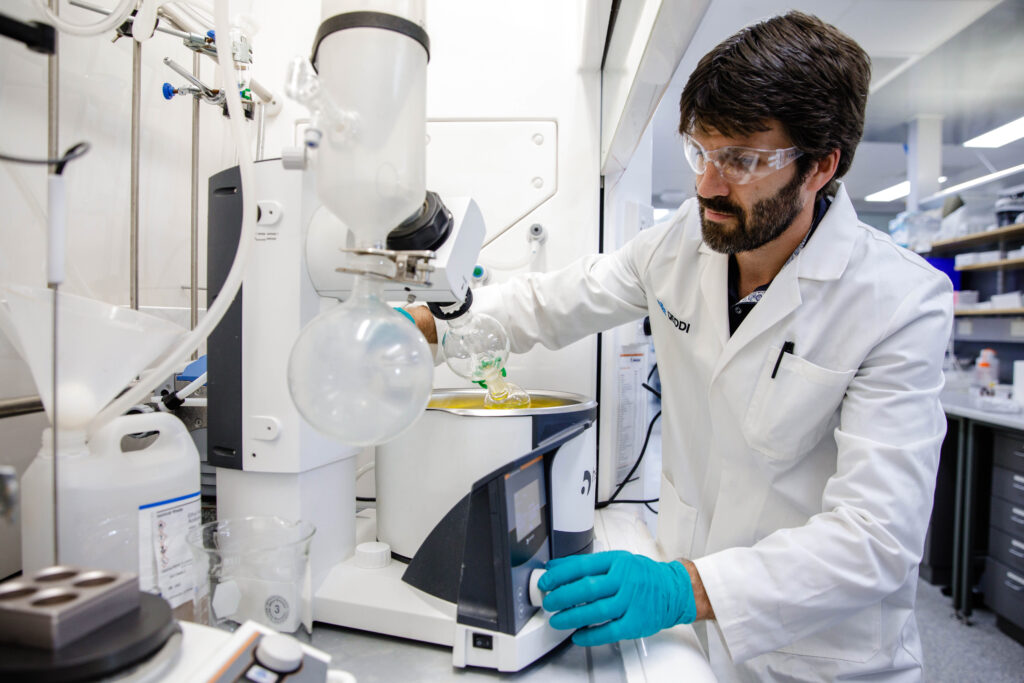TIA is set to boost our capabilities and resources following the announcement of NCRIS 2023 funding by The Hon Jason Clare MP, Minister for Education, and The Hon Ed Husic MP, Minister for Industry and Science.
The NCRIS scheme is a long-term research infrastructure support scheme supported by the Australian Government’s Department of Education. NCRIS investments supporting the translation of medical research are managed by TIA.
Included in TIA’s NCRIS 2023 funding is the expansion of our drug discovery and development research infrastructure, to support researchers and companies to meet key value inflection points and build readiness to engage with development partners and to develop their products to commercial endpoints and health impacts. As part of our expansion plan, we have committed $1.9M to support Queensland Emory Drug Discovery Initiative (QEDDI), the University of Queensland’s small molecule drug discovery facility. The funding will allow QEDDI to open its doors to Australian researchers and partner with research groups from across Australia who can benefit from its drug discovery services.
TIA’s CEO Dr Stuart Newman said QEDDI was a unique addition to Australia’s existing small molecule capabilities.
“We welcome QEDDI to the TIA network of drug discovery facilities and applaud its existing track record in delivering drug candidates matched with significant commercial expertise,” Dr Newman said.

Photo credit: The University of Queensland
QEDDI, which is managed by UQ’s commercialisation company UniQuest, has previously only made its services available to researchers at UQ.
UniQuest CEO Dr Dean Moss said it was an exciting evolution for the university-based drug discovery engine to offer its services nationwide.
“QEDDI has already built a promising pipeline of projects from UQ researchers since its inception,” Dr Moss said.
“This funding injection will bolster its capabilities and allow QEDDI to offer its world-class drug discovery expertise to a wider audience and hails an exciting future for the established small molecule discovery entity.”
Dr Moss said it was the natural next step for the growing drug discovery group.
“By opening our doors to other prospective projects, we can prevent unnecessary duplication of resources and infrastructure, while providing Queensland with the ability to leverage its expertise and capabilities to translate Australian biomedical research locally into drug candidates, with commercial returns to Australia,” he said.
Approximately $40 million has been invested in QEDDI to help it create new and potentially life-changing drugs at UQ, including through an Advance Queensland funding agreement with the Queensland Government.
QEDDI employs a team of 20 drug discovery experts and has the capability to perform drug discovery biology, medicinal chemistry, computational chemistry and preclinical development to identify promising small molecule drug candidates and develop them
to a stage where they may be of interest to pharmaceutical companies or investors for further development.
QEDDI was established as a division of UniQuest with guidance from Emory University’s Institute for Drug Development (EIDD) and Drug Innovation Ventures at Emory (DRIVE) in Atlanta, led by Professor Dennis Liotta, whose innovations resulted in 18 FDA-approved antiviral drugs, and Dr George Painter respectively.
